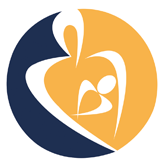-
Supporting a trainee or early career professional’s research project as they transition toward an independent position in the field of human milk and lactation.
-
Helping an awardee gain national or international exposure.
-
Establishing collaborations and building a career-centered portfolio in an aspect of human milk and lactation that was not the focus of their prior training.
Trainee Bridge Fund
The Trainee Bridge Fund (TBF) aims to provide awardees with a bridge toward becoming an independent professional in a career focused on an aspect of human milk and lactation research that was outside the focus of an awardee’s doctoral program (or other academic program/training), or to allow an awardee to move into the field of human milk and lactation, even if that was not the focus of the awardee’s doctoral program (or other academic program/training). The TBF will cover long-term activities, achievable within one year.
TBF-funded initiatives could include, for example:
The TBF covers up to USD 100,000 per awardee for visa-related costs, roundtrip transportation to/from the activity destination, accommodation and personal expenses (food, local transportation). Basic activity expenses are also covered, such as: laboratory costs, conference fees, workshop fees, flights to collaboration sites and ISRHML conference travel/accommodation for presentation of results and experience. The registration fee for the ISRHML conference is excluded, as ISRHML will waive the registration fee.
The final 3-5 candidates will be invited to an online presentation to present their projects and allow for questions during the Counsel Board meeting, for about 20 minutes each including questions. The Counsel Board meeting usually happens mid of December. 1-2 awards will be granted per year.
Documents
When submitting required documents, i.e., Budget Form and Type of Training, the pre-defined templates MUST BE USED (see below). Documents will not be accepted in any other format. Please submit required documents in ONE email to tep@isrhml.org.
